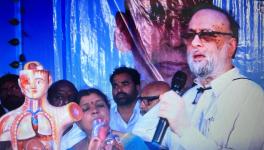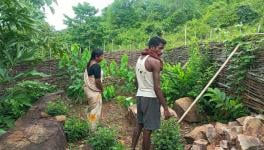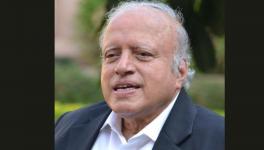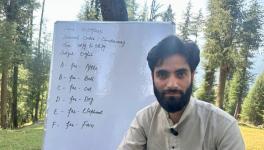Karnataka Rationalists Attempt to Bust Myths, Fears Around Solar Eclipse
Representational use only.Flickr.Com
Like in many parts of India, people in Karnataka hold the superstitious belief that bacteria is spread during eclipses. In the past, people would not venture out of their homes and believed that consuming food during an eclipse was harmful. Pregnant women would not even be allowed to leave their beds. Those women could probably be considered the lucky ones because the other women in the house would be expected to clean the entire home and change the drapes and curtains. Fresh food would be cooked only after the passing of the eclipse. People would also do pujas and consult astrologers for advice on personal safety.
Rationalists and scientists have been attempting to educate the public about the fact that solar eclipses were one of several natural phenomena which occur in nature in the ordinary course of time. During the period of the partial solar eclipse in Bengaluru on October 25, the rationalists gathered at Town Hall and set out a variety of fruits and snacks. Songs were sung, speeches were made, and food was consumed to show that it is absolutely safe to eat during an eclipse.
Nagesh Aralakuppe, 58, of the Akhila Karnataka Vicharavadi Sangha, spoke to NewsClick about his organisation. He said, “For about ten years now, we have been working to spread knowledge against superstitions. We educate people about the rationalist teachings of Periyar and Kuvempu. We organise programs across the state to help people develop a scientific temper. Our first Prime Minister, Jawaharlal Nehru, told people to worship science and dubbed factories and dams as temples of modern India.”
GB Patil of Jagatika Lingayat Mahasabha spoke about the history of such superstitions. He said, “This has been there since the time of Carvaka. Leaders like Buddha, Carvaka and Basavanna had been trying to educate people to let go of all blind beliefs. However, one class of people were earning a living by sowing superstitions. They may be pandits and astrologers. Today even the television media is nurturing this feeling because it helps them (generate content).”
In 2018, the Jagatika Lingayat Mahasabha was launched as a vehicle for the movement to establish a separate Lingayat religion. They argued that the anti-caste and reformist teachings of Basavanna were being diluted by Brahmanical forces within the community. The movement has ebbed after the deaths of Siddalinga Swami of Gadag and Mate Mahadevi. They were influential leaders of the community, and they passed away in 2018 and 2019, respectively.
The organisations that participated in the program on Tuesday include Akhila Karnataka Vicharavadi Sangha (All Karnataka Rationalists Association), DSS Ambedkarvada, Jagatika Lingayat Mahasabha, Karnataka State Dravidar Kazhagam, Dravida City Movement, and several individuals and scientists committed to rational thinking.
Many Ambedkarites and Buddhists also attended the programme on Tuesday. The program was held under the banner of Maudanambike Virodhi Okkuta Bengaluru (Association against superstitious belief).
Get the latest reports & analysis with people's perspective on Protests, movements & deep analytical videos, discussions of the current affairs in your Telegram app. Subscribe to NewsClick's Telegram channel & get Real-Time updates on stories, as they get published on our website.
























